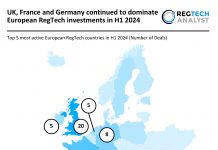EU and member state auditors have urged that audit gaps in EU banking supervision need to be closed.
In review of the current efforts within the EU to complete the Banking Union, the heads of the 29 Supreme Audit Intuitions of the EU and its member states have called for changes to audits.
The group has insisted national governments and parliaments, and the European Parliament, the Council and the Commission all work together to address deficiencies within accountability and audit arrangements within the EU banking supervision.
Following the establishment of the Single Supervisory Mechanism in 2014, there was a change to the architecture of EU banking supervision. Nearly 130 ‘significant’ banks, which represent a combined €21tn or 80 per cent of the total asset value of banks in the EU, came under the direct supervision of the European Central Bank (ECB). Several thousand ‘less significant’ banks continued to be under national supervision, but still a part of the ECB’s responsibility.
This restructure meant Supreme Audit Intuitions of the EU countries, which are mandated to audit the supervision of banks, were no longer able to perform this role for the ‘significant’ banks. The European Court of Auditors also does not have the power to audit the ECB’s supervisory mechanism for the ‘significant’ banks.
The auditors wish for the European Court of Auditors’ mandate to audit the ECB’s supervisory mechanism to be aligned with its auditing directive for other EU institutions. They also insist on the national Supreme Audit Intuitions are provided with access to all the relevant information, including from the ECB.
Alongside this, they want Supreme Audit Intuitions to be allowed to audit the national supervisory authorities.
In a joint statement the EU and Member State auditors said, “We are witnessing the paradoxical situation that the audit competencies regarding banking supervision are now overall more limited than prior to the introduction of the Single Supervisory Mechanism in 2014.”
Copyright © 2018 RegTech Analyst






